![Tri-County raises record-breaking $2 million for scholarships #Catholic - Tri-County Scholarship Fund (TCSF), a longstanding partner to the Paterson Diocese in providing scholarships for financially disadvantaged New Jersey children to receive a values-based, high-quality education, celebrated its 44th Annual Awards Dinner on Nov. 4, raising a record-setting $2 million to provide 970 K-12 scholarships.
More than 700 supporters, benefactors, educators, and community leaders gathered for the event at The Legacy Castle in Pompton Plains with a blessing offered by Bishop Kevin J. Sweeney of the Paterson Diocese, a TCSF trustee.
“We are profoundly grateful for the generosity in honor of this year’s award honorees, and in support of our students,” said Prudence Pigott, President of Tri-County. “Every dollar raised directly changes the trajectory of a child’s life. These scholarships provide access, stability, and hope—and our students repay that investment with hard work and tremendous promise.”
The TCSF’s Making a Difference honorees were John and Joanne Harrington of St. Luke Parish in the Long Valley neighborhood of Washington Township, N.J., owners of the family-run, multi-generational Harrington Construction. The Harringtons were recognized for their longstanding generosity, community leadership, and commitment to expanding educational opportunities for children.
Click here to subscribe to our weekly newsletter.
Benedictine Father Michael Tidd, headmaster of Delbarton School in Morristown, N.J., introduced the Harringtons, praising their “quiet leadership, generosity, and commitment to others,” adding that they embody the “spirit of trusteeship — always doing what is necessary to help people and communities not only survive, but thrive and flourish.”
In their remarks, the Joanne Harrington highlighted the impact of Tri-County students, saying, “The accomplished scholarship students you meet tonight are shining examples of the power of educational opportunity. They are truly amazing and inspiring individuals.” John Harrington reflected on one scholarship student’s story, noting, “By helping young people in New Jersey acquire a quality education, we can all make a lasting impact on our community.”
That evening, the TCSF’s Leadership and Hall of Fame Honorees were Jocelyn Grahame and Mike Goldman.
Jocelyn Grahame is the managing Partner of McKinsey & Company’s New Jersey office, who received the Leadership Award for her professional accomplishments and for McKinsey’s pro bono support of Tri-County’s strategic planning efforts. Grahame said, “Tonight reminds me of what communities can achieve when each of us uses our influence to lift others up—to help more students dream bigger and reach further.”
Mike Goldman, president and CEO of NFP, received the Hall of Fame Award. Introduced by past Tri-County Hall of Fame honoree Eric Andersen of Aon, Goldman reflected on his upbringing as the child of two educators and shared, “Tri-County gives children who need an opportunity the chance to access schools and environments where they are truly supported — and where the expectations are created that their future is really in their hands.”
The following students from diocesan Catholic schools played a central role during the evening:
Cecily, a freshman at DePaul Catholic High School in Wayne, N.J., opened the event with a powerful, a cappella rendition of the Star-Spangled Banner, earning a standing ovation from the audience of 700 guests.
Bella, a senior at Pope John XXIII Regional High School in Sparta, N.J., delivered the night’s keynote student address. She shared her story of the hardships her family has faced — losing her father to COVID-19 and supporting her mother through illness — and how her Tri-County scholarship opened the door to stability, hope, and a bright future. Her testimony moved the room to silence — and then to its feet.
Founded in 1981, the Tri-County Scholarship Fund addresses educational inequities by providing partial scholarships to financially disadvantaged K — 12 students in New Jersey. The organization partners with accredited, independent elementary and secondary schools to offer students safe, values-based educational opportunities that foster academic and personal growth. Over the past 44 years, TCSF has awarded more than 39,000 scholarships totaling over $41 million, enabling students to attend safe, high-quality schools, achieve a 100 percent high school graduation rate, and go on to college and productive careers.
Full replays of the honoree remarks, Bella’s speech, and Cecily’s performance can be viewed here.
[See image gallery at beaconnj.org]](http://unitedyam.com/wp-content/uploads/2025/12/tri-county-raises-record-breaking-2-million-for-scholarships-catholic-tri-county-scholarship-fund-tcsf-a-longstanding-partner-to-the-paterson-diocese-in-providing-scholarships-for-financially-d.jpg)
Tri-County raises record-breaking $2 million for scholarships #Catholic – ![]()
Tri-County Scholarship Fund (TCSF), a longstanding partner to the Paterson Diocese in providing scholarships for financially disadvantaged New Jersey children to receive a values-based, high-quality education, celebrated its 44th Annual Awards Dinner on Nov. 4, raising a record-setting $2 million to provide 970 K-12 scholarships.
More than 700 supporters, benefactors, educators, and community leaders gathered for the event at The Legacy Castle in Pompton Plains with a blessing offered by Bishop Kevin J. Sweeney of the Paterson Diocese, a TCSF trustee.
“We are profoundly grateful for the generosity in honor of this year’s award honorees, and in support of our students,” said Prudence Pigott, President of Tri-County. “Every dollar raised directly changes the trajectory of a child’s life. These scholarships provide access, stability, and hope—and our students repay that investment with hard work and tremendous promise.”
The TCSF’s Making a Difference honorees were John and Joanne Harrington of St. Luke Parish in the Long Valley neighborhood of Washington Township, N.J., owners of the family-run, multi-generational Harrington Construction. The Harringtons were recognized for their longstanding generosity, community leadership, and commitment to expanding educational opportunities for children.
Click here to subscribe to our weekly newsletter.
Benedictine Father Michael Tidd, headmaster of Delbarton School in Morristown, N.J., introduced the Harringtons, praising their “quiet leadership, generosity, and commitment to others,” adding that they embody the “spirit of trusteeship — always doing what is necessary to help people and communities not only survive, but thrive and flourish.”
In their remarks, the Joanne Harrington highlighted the impact of Tri-County students, saying, “The accomplished scholarship students you meet tonight are shining examples of the power of educational opportunity. They are truly amazing and inspiring individuals.” John Harrington reflected on one scholarship student’s story, noting, “By helping young people in New Jersey acquire a quality education, we can all make a lasting impact on our community.”
That evening, the TCSF’s Leadership and Hall of Fame Honorees were Jocelyn Grahame and Mike Goldman.
Jocelyn Grahame is the managing Partner of McKinsey & Company’s New Jersey office, who received the Leadership Award for her professional accomplishments and for McKinsey’s pro bono support of Tri-County’s strategic planning efforts. Grahame said, “Tonight reminds me of what communities can achieve when each of us uses our influence to lift others up—to help more students dream bigger and reach further.”
Mike Goldman, president and CEO of NFP, received the Hall of Fame Award. Introduced by past Tri-County Hall of Fame honoree Eric Andersen of Aon, Goldman reflected on his upbringing as the child of two educators and shared, “Tri-County gives children who need an opportunity the chance to access schools and environments where they are truly supported — and where the expectations are created that their future is really in their hands.”
The following students from diocesan Catholic schools played a central role during the evening:
- Cecily, a freshman at DePaul Catholic High School in Wayne, N.J., opened the event with a powerful, a cappella rendition of the Star-Spangled Banner, earning a standing ovation from the audience of 700 guests.
- Bella, a senior at Pope John XXIII Regional High School in Sparta, N.J., delivered the night’s keynote student address. She shared her story of the hardships her family has faced — losing her father to COVID-19 and supporting her mother through illness — and how her Tri-County scholarship opened the door to stability, hope, and a bright future. Her testimony moved the room to silence — and then to its feet.
Founded in 1981, the Tri-County Scholarship Fund addresses educational inequities by providing partial scholarships to financially disadvantaged K — 12 students in New Jersey. The organization partners with accredited, independent elementary and secondary schools to offer students safe, values-based educational opportunities that foster academic and personal growth. Over the past 44 years, TCSF has awarded more than 39,000 scholarships totaling over $41 million, enabling students to attend safe, high-quality schools, achieve a 100 percent high school graduation rate, and go on to college and productive careers.
Full replays of the honoree remarks, Bella’s speech, and Cecily’s performance can be viewed here.
[See image gallery at beaconnj.org] – ![]() Tri-County Scholarship Fund (TCSF), a longstanding partner to the Paterson Diocese in providing scholarships for financially disadvantaged New Jersey children to receive a values-based, high-quality education, celebrated its 44th Annual Awards Dinner on Nov. 4, raising a record-setting $2 million to provide 970 K-12 scholarships. More than 700 supporters, benefactors, educators, and community leaders gathered for the event at The Legacy Castle in Pompton Plains with a blessing offered by Bishop Kevin J. Sweeney of the Paterson Diocese, a TCSF trustee. “We are profoundly grateful for the generosity in honor of this year’s award honorees, and in support of our
Tri-County Scholarship Fund (TCSF), a longstanding partner to the Paterson Diocese in providing scholarships for financially disadvantaged New Jersey children to receive a values-based, high-quality education, celebrated its 44th Annual Awards Dinner on Nov. 4, raising a record-setting $2 million to provide 970 K-12 scholarships. More than 700 supporters, benefactors, educators, and community leaders gathered for the event at The Legacy Castle in Pompton Plains with a blessing offered by Bishop Kevin J. Sweeney of the Paterson Diocese, a TCSF trustee. “We are profoundly grateful for the generosity in honor of this year’s award honorees, and in support of our
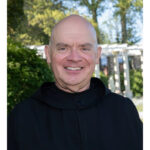
![Randolph parish rejoices in receiving Colombian-born pastor #Catholic - Resurrection Parish in Randolph, N.J., on Dec. 7, joyfully welcomed Bishop Kevin J. Sweeney, who installed Father Yojaneider Garcia as pastor of the parish during a Mass the bishop celebrated.
Bishop Sweeney named Father Garcia as Resurrection’s pastor effective July 1, while continuing as director of Catechesis and Faith Formation for the Paterson Diocese in New Jersey. The Colombian-born priest is also a diocesan Censor Librorum, an ecclesiastical authority charged with reviewing texts for doctrinal accuracy. Father Garcia is also participating in executive-level coursework through Boston College as part of a new project.
Click here to subscribe to our weekly newsletter.
Bishop Arthur J. Serratelli ordained Father Garcia on May 24, 2014.
“I am very grateful to all the people who participated in my installation as pastor. I was truly overwhelmed by the presence of so many parishioners and friends, and by the beautiful expressions of love and support you offered me. Thank you very much to everyone who attended,” Father Garcia posted on social media.
During his visit, Bishop Sweeney also blessed a room at Resurrection for children and their families to use during the parish’s Inclusive & Accessible Masses.
BEACON PHOTOS | JOE GIGLI
[See image gallery at beaconnj.org]](http://unitedyam.com/wp-content/uploads/2025/12/randolph-parish-rejoices-in-receiving-colombian-born-pastor-catholic-resurrection-parish-in-randolph-n-j-on-dec-7-joyfully-welcomed-bishop-kevin-j-sweeney-who-installed-father-yojaneider-gar.jpg)
![In winter cold, advocates pray for unborn in Morristown #Catholic - With light snow on the ground, faithful bundled up in coats, hats, and gloves in the winter cold on Dec. 6 in Morristown, N.J., to proclaim the Respect Life message during Bishop Kevin J. Sweeney’s monthly Mass for Life and Rosary Procession.
That morning Bishop Sweeney celebrated Mass at St. Margaret of Scotland Church in Morristown. Father Sebastian Munoz, parochial vicar of St. Margaret’s, concelebrated the liturgy with the bishop. Deacon Tim Holden of the parish assisted with the Mass.
Click here to subscribe to our weekly newsletter.
Then, Bishop Sweeney led an outdoor rosary procession for life to Planned Parenthood on Speedwell Avenue after the Mass. A few of people carried signs in English and Spanish that promoted respect for life as they prayed the rosary for an end to abortion.
A Mass and procession for life is held on the first Saturday of the month at 8 a.m. at St. Margaret’s. Priests and faithful from around the diocese are invited to join.
BEACON PHOTOS | JOE GIGLI
[See image gallery at beaconnj.org]](http://unitedyam.com/wp-content/uploads/2025/12/in-winter-cold-advocates-pray-for-unborn-in-morristown-catholic-with-light-snow-on-the-ground-faithful-bundled-up-in-coats-hats-and-gloves-in-the-winter-cold-on-dec-6-in-morristown-n-j-to-p.jpg)
![Ancient Advent Mass gains new interest among younger Catholics #Catholic
The Rorate Caeli Advent Mass celebrated at The National Shrine of Our Lady of Champion. / Credit: The National Shrine of Our Lady of Champion
CNA Staff, Dec 14, 2025 / 06:00 am (CNA).
Advent is a season filled with rich Catholic traditions, but a slightly lesser-known one is growing in popularity among younger Catholics. The ancient liturgy of the Rorate Caeli Advent Mass honors the Blessed Virgin Mary through a Mass celebrated at dawn, in complete darkness, and lit only by candles, which symbolizes Christ, the Light of the World, entering into the world with Mary as the vessel. Emerging in the Middle Ages, the Rorate Caeli Mass gets its name from the prophecy of Isaiah. Rorate Caeli is Latin for “drop down, ye heavens.” These are the opening words of this liturgy’s Introit, which is used as an opening psalm or entrance antiphon and comes from Isaiah 45:8.Father Tony Stephens, rector at the National Shrine of Our Lady of Champion in Champion, Wisconsin, calls this Mass “a teachable moment.”“As all of us are gathered in the church, only lit with the candles, slowly the light begins coming in through the windows and it’s like the light of Christ,” he told CNA. The process symbolizes “the light of Christ coming into our lives, slowly but surely and progressively as we go through life.”“And just like that light begins to come in through the windows, as the physical sun rises, so in our journey as Catholics, the closer we get to Christ, the more his light shines in our life,” he said. Fr. Nathaneal Mudd, CPM, celebrates the Rorate Caeli Advent Mass at the National Shrine of Our Lady of Champion in 2024. Credit: The National Shrine of Our Lady of ChampionStephens has been rector of the National Shrine of Our Lady of Champion for two years but was scheduled to celebrate the Rorate Caeli Mass there for the first time on Dec. 13. The shrine is the first and only approved Marian apparition site in the United States. It was here that the Blessed Mother is believed to have appeared to Adele Brise in 1859. When speaking about the Blessed Mother’s role in Advent, Stephens described it as “a season of anticipating Our Lord, but when you look at the subtext of Advent, things about Mary are everywhere — in the readings and her role in salvation history is so important. And so that’s, again, part of the reason you have these special Marian Masses honoring her during this Advent season.”He also highlighted the fact that this ancient Mass is seeing a resurgence in popularity and credited Pope Benedict XVI, in part, for reintroducing Catholics to older, traditional practices and his “desire of the hermeneutic of continuity.” “He in his pontificate really emphasized a desire to have that continuity between the earlier traditions of the Church, even prior to the [Vatican II] council … looking at all of the rich liturgical heritage that we have as Catholics,” he added. The priest pointed out that young people are also searching for more traditional practices.“There is a great love, especially amongst young people, for things that are traditional,” he said, adding that the Mass also “appeals to the senses in a way that technology and phones don’t.” “The real light of a candle is way different than the electronic light put off by a cellphone screen,” he said. “A burning, living candle, the way it flickers, and you can’t recharge a candle — it gives everything it has like Jesus did on the cross. A candle burns with all its might to put off that light. And so there is a selflessness about that light of that candle that’s different than technology, and young people desire that kind of self-gift and authenticity.”Stephens said he hopes those who attend a Rorate Caeli Mass will leave with “an eager anticipation of Jesus coming at Christmastime.”“A Rorate Caeli Mass is one of those times that we can have a little consolation and we’re reminded of the author of all consolation and his mother,” he said.](http://unitedyam.com/wp-content/uploads/2025/12/ancient-advent-mass-gains-new-interest-among-younger-catholics-catholic-the-rorate-caeli-advent-mass-celebrated-at-the-national-shrine-of-our-lady-of-champion-credit-the-national-shrine-of-ou.webp)








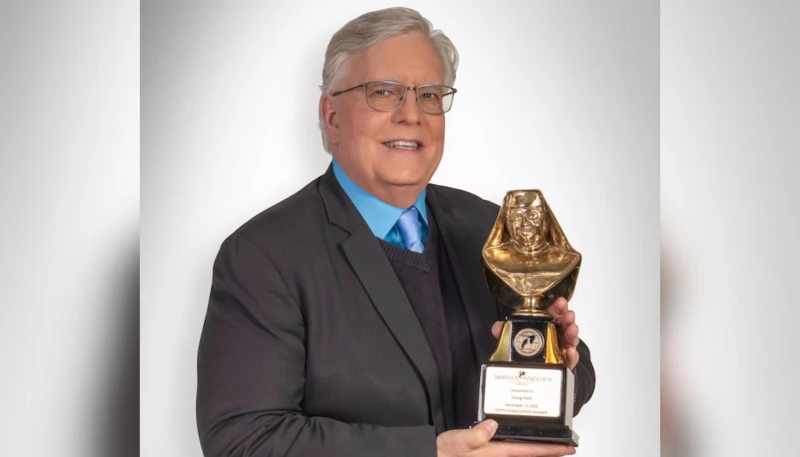



![Florham Park Catholic helps coordinate law school’s first Eucharistic procession #Catholic - Before Nov. 23, no one at Ave Maria Law School in Naples, Fla., a Catholic institution, had ever seen such a glorious sight: an outdoor Eucharistic procession of 100 young students crossing the campus and praying behind the Blessed Sacrament carried under an embroidered canopy.
On that sunny day, Ave Maria Law’s first-ever Eucharistic procession graced Catholic men and women on campus with the opportunity to gather in prayer for the Feast of Christ the King. The event started with Mass and concluded with Benediction. Michael Ippolito, a law student there and parishioner of Holy Family in Florham Park, N.J., proposed the idea and helped organize and participated in the procession.
Ippolito, 24, is part of a growing movement of young U.S. Catholics deepening their commitment in strong faith communities. A Harvard University Cooperative Election Study showed a jump in Gen Z Americans identifying as Catholic, from 15 percent in 2022 to 21 percent in 2023, with young men leading the trend. Ippolito’s faith has blossomed into evangelization — bringing Christ into the world — as an active community member and writer.
Ippolito said he was “honored” to take part in the procession, helping students celebrate and reclaim their Catholic heritage in public.
“It was a moving experience that allowed Christ to be brought to the depths of the law school. The moment captured the essence of the law school’s mission of Fides et Ratio [Faith and Reason]. I hope that the law school will continue this tradition, and continue in its mission of forming great lawyers and Catholic disciples,” said Ippolito, in his second year of law school with a concentration in Natural Law.
Click here to subscribe to our weekly newsletter.
Raised in a devout family, Ippolito began his faith journey in earnest in his teens, when “God was an afterthought,” and grew through several milestones. While a student at Seton Hall Prep in West Orange, N.J., he encountered Christ in theology classes and at a men’s retreat, where he spent “intimate time” with him in prayer and worship, and was inspired by the testimonies of students and teachers.
“I learned that Jesus loved me and how to bring my faith into the world. It was a ‘Come to God moment’ for me,” Ippolito said.
Later, Ippolito found a community of fellow young Catholics serious about their faith as a student of the Catholic University of America in Washington, D.C. He experienced a deeper conversion attending the Traditional Latin Mass in a faith that remains constant.
“In our generation, nothing is stable. We are told lies about careers and relationships, including non-marital sex. People wrongly say, ‘God is a loving God, so I don’t have to change,’” said Ippolito, who was in the Knights of Columbus at Catholic University. He earned a bachelor’s degree in politics with minors in history and theology in 2023. “In college, I began questioning, ‘Am I living life the way God wants me to live?’”
At Ave Maria Law, Ippolito belongs to the Knights of Columbus, Legion of Mary, and St. Thomas More Society. He suggested the procession to Father David Pignato, the school’s chaplain. The priest said he “supports the Catholic revival at Ave Maria Law.”
Ippolito also has written about history and contemporary politics from a Catholic perspective for publications such as Crisis Magazine and The Daily Signal to get his opinion “out into the larger conversation.”
Growing up, Ippolito attended weekly Mass at Holy Family with his family: his father, Tobi, an internist; his mother, Anne, a master’s degree candidate in systematic theology at Seton Hall University in South Orange, N.J.; his brother, Tony, 27, a medical student; and his sister, Jessica, 23, a college student. Tobi is studying for the permanent diaconate of the Paterson Diocese in New Jersey and anticipates being ordained next year.
“I’m inspired by the fact that my dad has taken up the duty to serve the Church. His diaconate studies have been a gift. As a family, we are now all closer to our faith,” Ippolito said.
Follow Ippolito on @mikeipps and Substack@michaeljippolito](http://unitedyam.com/wp-content/uploads/2025/12/florham-park-catholic-helps-coordinate-law-schools-first-eucharistic-procession-catholic-before-nov-23-no-one-at-ave-maria-law-school-in-naples-fla-a-catholic-institution-had-ever-se.jpg)
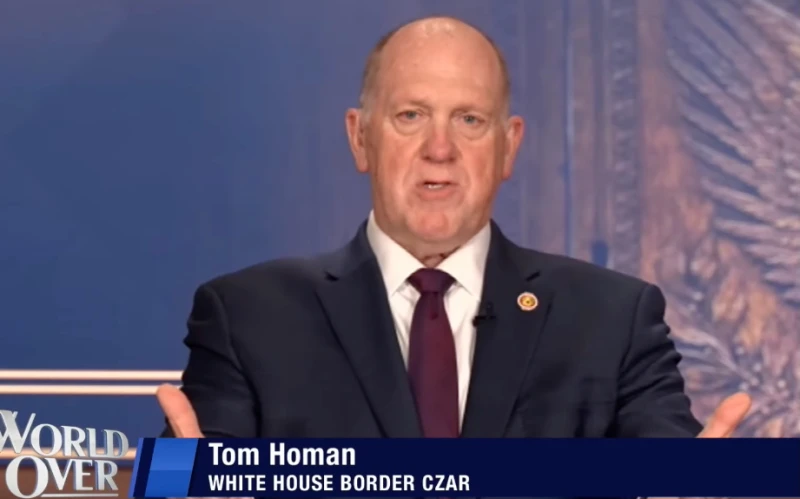



![Priests explore Christmas in early Church at Madison Advent event #Catholic - On Dec. 1, Jesuit Father Michael Magree, an assistant theology professor at Boston College, spoke to 45 priests about “Christmas in the early Church during the annual Priests’ Advent Day of Recollection at St. Paul Inside the Walls in Madison, N.J.
Participating priests, active and retired, gathered for the day of recollection. Bishop Kevin J. Sweeney greeted the priests and welcomed Father Magree. The event was preceded by a luncheon and followed by a holy hour with evening prayer.
Click here to subscribe to our weekly newsletter.
Father David Monteleone, pastor of St. Philip the Apostle Parish in Clifton, N.J.; Father Christopher Barkhausen, pastor of St. Francis de Sales Parish in the McAfee neighborhood of Vernon, N.J.; and Father Greg Golba, pastor of St. Francis of Assisi Parish in the Haskell neighborhood of Wanaque, N.J., coordinated the event.
“The Priests’ Advent Day of Recollection was a time for fraternity and prayer. We priests were able to step away from our busy schedules to more prayerfully enter into the season of Advent,” Father Monteleone said.
BEACON PHOTOS | JOE GIGLI
[See image gallery at beaconnj.org]](http://unitedyam.com/wp-content/uploads/2025/12/priests-explore-christmas-in-early-church-at-madison-advent-event-catholic-on-dec-1-jesuit-father-michael-magree-an-assistant-theology-professor-at-boston-college-spoke-to-45-priests-about-82.jpg)
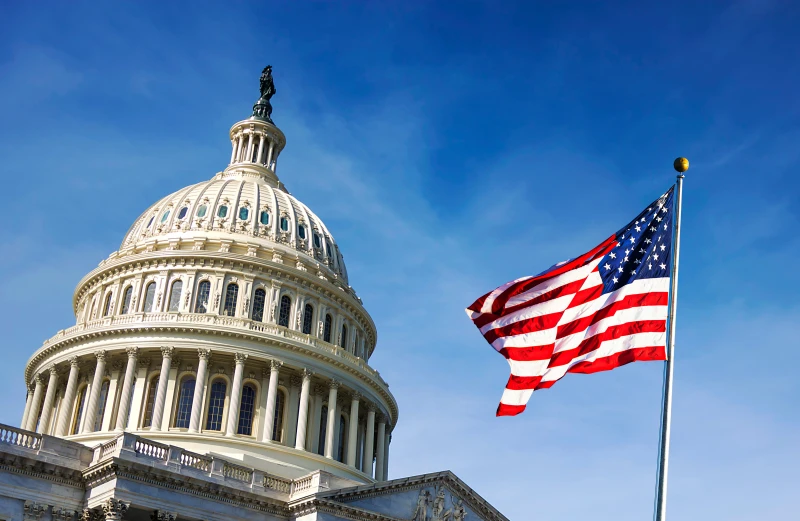


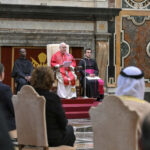
![A dream realized: 6 years after the fire, Straight and Narrow dedicates new state-of-the-art building #Catholic - Blessing and ribbon-cutting of drug and alcohol rehab honors longtime leader of Catholic Charities, Diocese of Paterson
“We will rebuild.” That’s what Msgr. Herbert Tillyer said to Scott Milliken, CEO of Catholic Charities for the Diocese of Paterson, on Aug. 19, 2019, after a six-alarm fire had destroyed the main building of the drug and alcohol rehabilitation center, Straight and Narrow. The two had been in the Paterson Fire Department’s command center mobile trailer all day with Angela Nikolovski, executive director of Straight and Narrow. They were assured by officials that everyone had escaped safely, and thanks to the American Red Cross and St. Joseph’s Hospital, clients had been cared for and relocated.
Milliken shared the story on Dec. 8 as over 200 community leaders, lawmakers, volunteers, and supporters gathered for a blessing and ribbon-cutting of the new state-of-the-art facility, fittingly named the Monsignor Herbert K. Tillyer, P.A. Rehabilitation Center in honor of the former chairman of the board of Straight and Narrow and longtime leader of Catholic Charities organizations. With Msgr. Tillyer’s vision and wisdom, said Milliken, they have rebuilt the premier, best building they could for rehabilitation.
Nikolovski, executive director of the comprehensive social service nonprofit, said the grand opening is a testament to what can be achieved when people work together on a shared vision. “We have transformed our vision into a reality and reimagined what recovery and treatment can look like in our community.” This will allow Straight and Narrow to expand, she said, reaching and serving more individuals and families, providing “innovative, compassionate care in a space designed for healing.”
The $30 million project, a 50,000 square-foot facility, features a 50-bed halfway house for men, a state-of-the-art food-service dining and commercial kitchen to serve approximately 3,000 meals a day, men’s and women’s clinical and outpatient services, pastoral care, and administrative offices. The building is located next door to other Straight and Narrow buildings, not affected by the fire. Straight and Narrow also offers a Mommy and Me program, a Wellness Center featuring a CrossFit trainer, and Gymboree for clients’ children. Plans are underway to develop a halfway house for women, including women with children, and renovations are underway for the medical adult daycare center.
Click here to subscribe to our weekly newsletter.
“I have always said that working in Passaic County as a leader is a special network of people,” said Milliken. The dream was realized because of many generous, skilled individuals, said Milliken as he thanked NK Architects, Natoli Construction, the Catholic Charities Board of Trustees led by Father Martin Glynn, the Catholic Charities team, lawmakers including Congresswoman Nellie Pou and State Sen. Benjie Wimberly who helped secure New Jersey State budget funding, Paterson mayor André Sayegh, Passaic mayor Hector Lora, Ron Jampel, a volunteer, who guided them through the New Market Tax credit procedure, New Jersey Capital, AFLI-CII Housing Investment Trust and Valley Bank. The agency also received support from the Diocese of Paterson’s Diocesan Ministries Appeal, $1.6 million from the American Rescue Plan through the City of Paterson for an HIV program, and a grant from the Moglia Foundation to build a Wellness Center.
Kerry Alys Robinson, president and CEO of Catholic Charities USA, attended the event and shared how she was delighted to receive a letter from Pope Leo XIV in October at their annual convention. One line from the Holy Father’s message touched her heart: “Through your 168 Diocesan Catholic Charities agencies, you become agents of hope for the millions of people who approach the Church in the United States of America seeking compassion and care.” Robinson said, “The men and women of Catholic Charities Diocese of Paterson are the very agents of hope about whom the pope wrote. Indeed, the Monsignor Herbert Tillyer Rehabilitation Center is a beautiful living testament to the fact that hope cannot be extinguished.”
Msgr. Tillyer led the gathered in a prayer expressing gratitude and joy to God. “We rededicate ourselves to the saving mission of providing life-saving help to every person who will be served in this new rehabilitation center. Doing this faithfully and well under your guidance, dear Lord, will enable us to create genuine hope in the hearts and the minds of our precious clients and their families… we humbly and confidently ask you Lord for your guiding hand in every therapeutic intervention, in all the work that will take place here for many years and decades to come, even into the next century.”
The Diocese of Paterson’s Bishop Kevin J. Sweeney said the project has been an example of great teamwork and the good that can happen when community leaders work together. “We are all God’s children, and we believe as Christians that God calls us to see the presence of God in each and every person, especially our brothers and sisters who are most in need.” Pointing out that they were holding the event on the Feast of the Immaculate Conception and that the Feast of Our Lady of Guadalupe was to be celebrated on Dec. 12, the Bishop led the blessing, praying that Our Lord through the intercession of Mary, St. Joseph and all the angels and saints would bless the new facility and “all those who have made it possible, all those who will come to work here, to serve and to receive the gifts of healing and hope.”
Milliken encouraged guests touring the space to look at the quality of the craftsmanship guided by Natoli Construction and “made in America by our local unions.”
Many who worked on and supported the project were delighted to be in attendance.
“These types of projects make work amazing. You come here, and you feel the impact, and you know that you are making a difference,” said Harpreet Peleg, CEO of Building America and chief financial officer of the AFL-CIO Housing Investment Trust.
“It’s a really exciting day. To rebuild this…and see how beautiful it is and how many lives it is going to change; it’s extremely rewarding,” said Tom Kelly, president, Passaic Central Labor Council.
“For decades, Straight and Narrow has offered a lifeline to men and women struggling with substance use and addiction, said Congresswoman Nellie Pou. “It restores dignity, rebuilds families, and renews hope before despair can take root. Every day, the staff and volunteers here carry out the Gospel’s call to lift our neighbors up, offering compassion and clinical excellence in equal measure. With the opening of this new center, that mission continues, stronger and broader but imbued with the same unwavering commitment to the inherent worth of every man and woman.”
“We are here to celebrate a city of second chances, and a center that will give people a second chance … this is a building of mercy,” said Paterson Mayor André Sayegh.
BEACON PHOTOS | JOE GIGLI
[See image gallery at beaconnj.org]](http://unitedyam.com/wp-content/uploads/2025/12/a-dream-realized-6-years-after-the-fire-straight-and-narrow-dedicates-new-state-of-the-art-building-catholic-blessing-and-ribbon-cutting-of-drug-and-alcohol-rehab-honors-longtime-leader-of-cathol.jpg)

![West Milford Living Nativity gives visitors glimpse of Christ’s birth #Catholic - Roughly 1,800 people attended the Living Nativity re-enactment with guided tours through the town of Bethlehem at Our Lady Queen of Peace (OLQP) Parish in the Hewitt neighborhood of West Milford, N.J., on the evenings of Dec. 6 and 7.
In the church parking lot, visitors could step back in time to experience the miracle of Christmas unfold before their eyes. They walked through the streets of Bethlehem, met its people, and witnessed the birth of Jesus in a live reenactment featuring live animals, authentic scenery, music, and narration. Visitors also could enjoy food, which was available in the school cafeteria.
Click here to subscribe to our weekly newsletter.
OLQP, led by its pastor, Father Kamil Stachowiak, described the Living Nativity as “an unforgettable evening filled with faith, wonder, and the true spirit of Christmas.”
PHOTOS | BISHOP KEVIN J. SWEENEY
[See image gallery at beaconnj.org]
SUBMITTED PHOTOS
[See image gallery at beaconnj.org]](http://unitedyam.com/wp-content/uploads/2025/12/west-milford-living-nativity-gives-visitors-glimpse-of-christs-birth-catholic-roughly-1800-people-attended-the-living-nativity-re-enactment-with-guided-tours-through-the-town-of-bethlehem.jpg)
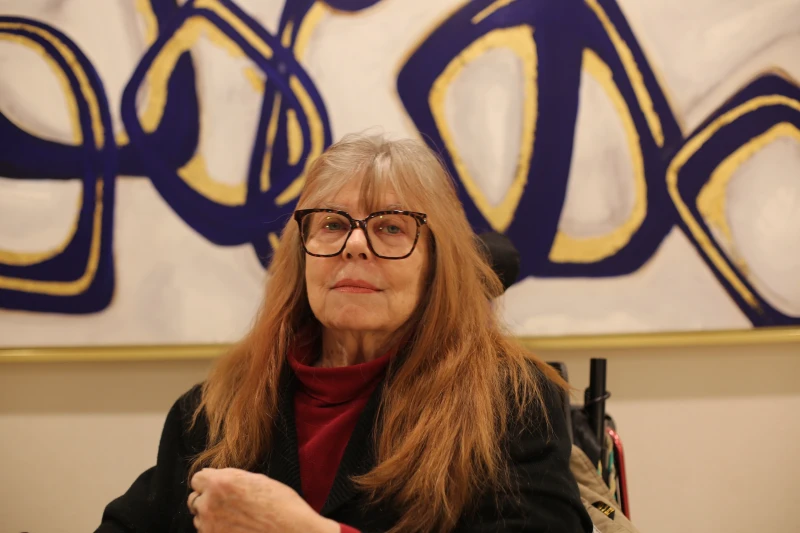

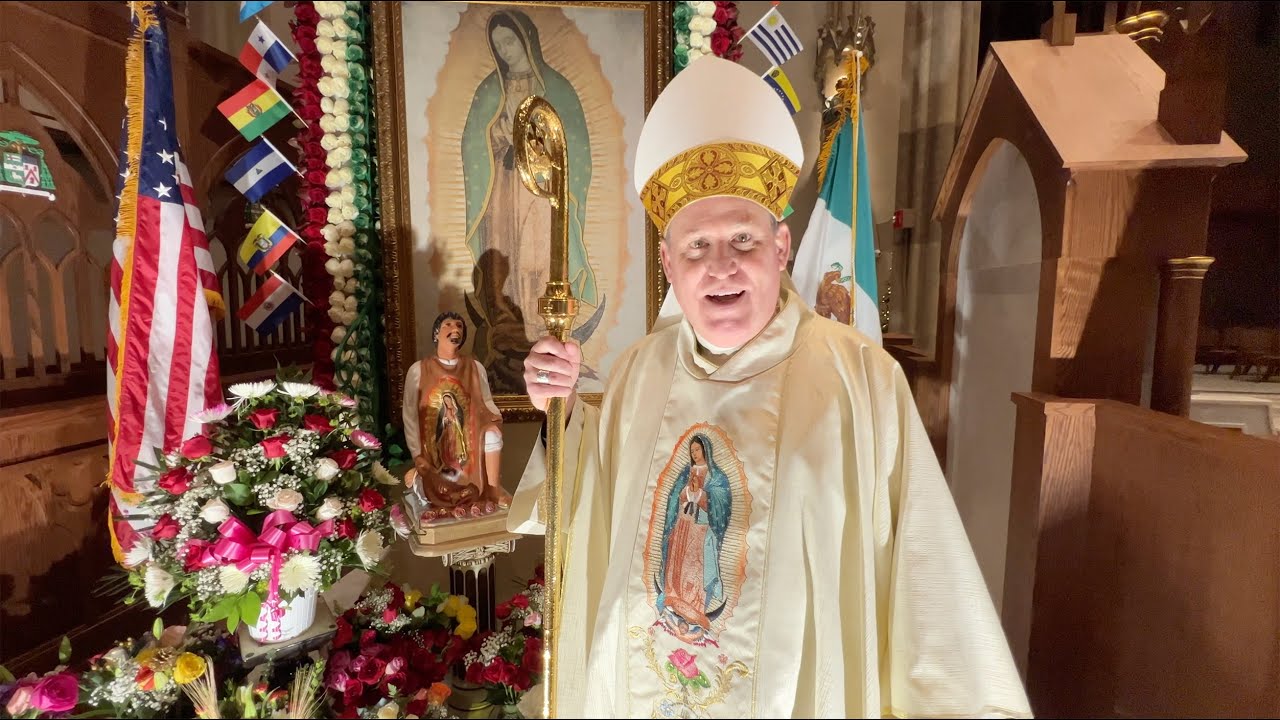

![Prayers honor immigrants at Clifton’s Noche De Las Velitas #Catholic - On Dec. 7, almost 100 faithful of the Paterson Diocese prayed the Glorious Mysteries of the rosary in English and Spanish for the immigrant community facing difficult times during the diocese’s annual “Noche de las Velitas” (“Night of the Candles”), held on the grounds of Holy Face Monastery in Clifton, N.J. Bishop Kevin J. Sweeney participated in the event, a Latin-American tradition that honors the Immaculate Conception.
Adults and families with children from parishes of the diocese joined the bishop and the Benedictine monks who run Holy Face for an outdoor evening candlelight procession on monastery grounds. The faithful prayed the rosary and sang traditional songs to the Blessed Virgin Mary while a few participants recited reflections. The diocesan Office of Hispanic Ministry organized the event.
Maria Moncaleano, director of Hispanic Ministry, said, “On this second Sunday of Advent, we heard in the Gospel how John the Baptist cries out in the desert against unfairness and injustice. It may seem unusual, but part of preparing for the birth of Jesus means pointing out what is wrong and unfair in the places where we live. That is how we can begin to create the communities of kindness, love and justice that Jesus desires.”
Click here to subscribe to our weekly newsletter.
Moncaleano continued, “In these days of Advent, let us especially reach out to migrants and refugees who also are greeted with responses of ‘there is no room’ as Joseph and Mary encountered. May we demonstrate the love that we have for Jesus to create a better world where all people feel welcome.”
The Night of the Candles dates back to Dec. 7, 1854, when Pope Pius IX published his apostolic constitution “Ineffabilis Deus,” which defined the dogma of the Immaculate Conception of the Virgin Mary. People in Colombia lit candles and paper lanterns in celebration of the announcement. It is an annual tradition that Colombians and other Latin-American countries have observed ever since.
Moncaleano thanked the Benedictine monks for their hospitality and the many volunteers who helped her decorate the pathway for the procession. She especially thanked Father Yohan Serrano, chaplain for Hispanic Ministry, for his presence and support.
BEACON PHOTOS | JOE GIGLI
[See image gallery at beaconnj.org]](http://unitedyam.com/wp-content/uploads/2025/12/prayers-honor-immigrants-at-cliftons-noche-de-las-velitas-catholic-on-dec-7-almost-100-faithful-of-the-paterson-diocese-prayed-the-glorious-mysteries-of-the-rosary-in-english-and-spanish.jpg)
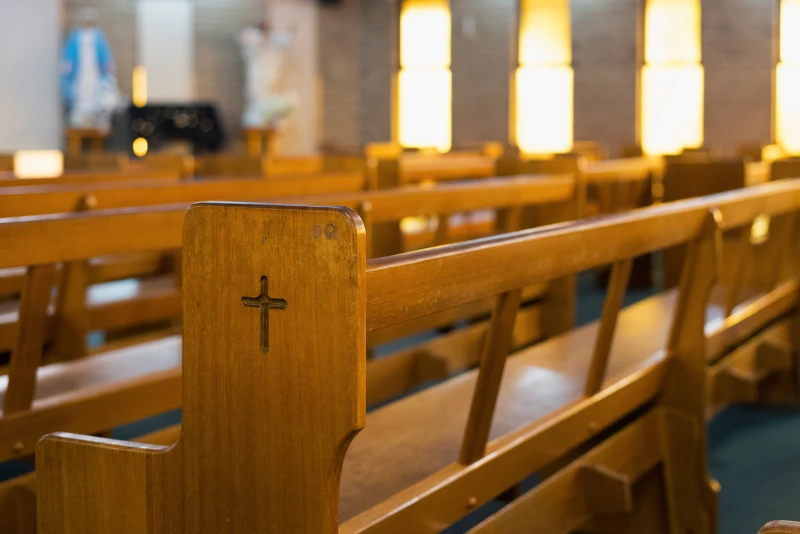


![St. Clare Parish in Clifton welcomes new pastor #Catholic - St. Clare Parish in Clifton, N.J., on Nov. 30 welcomed Bishop Kevin J. Sweeney, who installed Father Francis Conde as its pastor during a Mass the bishop celebrated. Bishop Sweeney appointed Father Conde pastor of St. Clare’s, effective Oct. 1
Father Conde was ordained to the priesthood in the Diocese of Virac in his native Philippines in 1994. Bishop Emeritus Arthur J. Serratelli incardinated him into the Paterson Diocese in New Jersey in 2019.
Click here to subscribe to our weekly newsletter.
In the Paterson Diocese, Father Conde previously was parochial vicar at Our Lady of the Lake Parish in Sparta, N.J., and chaplain at St. Joseph’s University Medical Center in Paterson, N.J.
On social media, St. Clare’s called Father Conde’s installation “a beautiful and unforgettable moment for our parish. Friends and family joined us from all across the diocese, the country, and all the way from the Philippines. Our hearts are full.”
BEACON PHOTOS | JOE GIGLI
[See image gallery at beaconnj.org]](http://unitedyam.com/wp-content/uploads/2025/12/st-clare-parish-in-clifton-welcomes-new-pastor-catholic-st-clare-parish-in-clifton-n-j-on-nov-30-welcomed-bishop-kevin-j-sweeney-who-installed-father-francis-conde-as-its-pastor-during-a-ma.jpg)
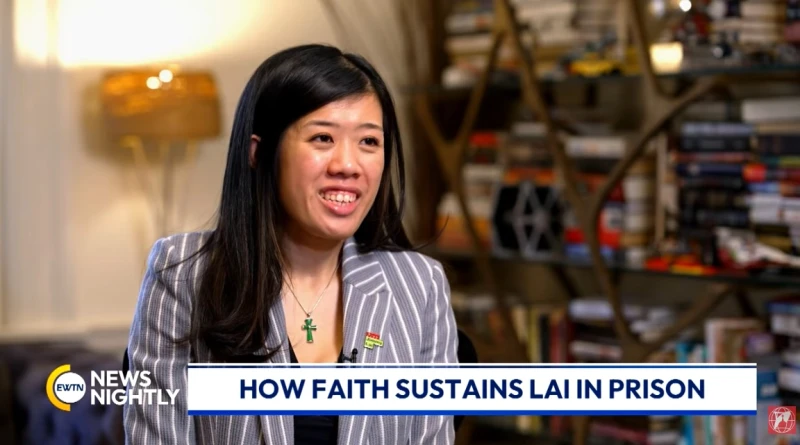



![Extensive renovations make Passaic parish hall shine once again #Catholic - On Nov. 28, Bishop Kevin J. Sweeney visited St. Anthony of Padua Parish in Passaic, N.J., to celebrate a bilingual Mass. During his visit, the bishop rededicated the recently renovated parish hall and blessed a new statue of St. Lorenzo Ruiz, the first Filipino saint, in recognition of the parish’s growing Filipino community.
Three years ago, St. Anthony’s closed its parish center because it was unusable due to leaks and other damage. Then the parish began fundraising for the improvement project, which included new floors, lighting, doors, air conditioning, and decorations. The renovation started in March.
“The project was made possible by the hard work and help of the St. Anthony’s community,” said Father Javier Bareno, pastor of St. Anthony’s.
Click here to subscribe to our weekly newsletter.
Concelebrating the Mass with Bishop Sweeney were Father Bareno; Father Alexis Coffi Gonzalez, parochial vicar of St. Anthony’s; Father Hernan Cely, pastor of St. Vincent de Paul Parish in the Stirling neighborhood of Long Hill Township, N.J. and a former St. Anthony’s pastor; Father Jose M. Zuniga, parochial vicar of St. Vincent Martyr Parish in Madison, N.J., and a former parochial vicar at St. Anthony’s; Father Duberney Villamizar, pastor of St. Margaret of Scotland Parish in Morristown, N.J., and vicar for Hispanic Affairs for the Paterson Diocese; and Father Vidal Gonzales, Jr., pastor of Notre Dame of Mount Carmel Parish in the Cedar Knolls neighborhood of Hanover Township, who was born in the Philippines.
BEACON PHOTOS | JOE GIGLI
[See image gallery at beaconnj.org]](http://unitedyam.com/wp-content/uploads/2025/12/extensive-renovations-make-passaic-parish-hall-shine-once-again-catholic-on-nov-28-bishop-kevin-j-sweeney-visited-st-anthony-of-padua-parish-in-passaic-n-j-to-celebrate-a-bilingual-mass-dur.jpg)
![What is ‘papal infallibility?’ CNA explains an often-misunderstood Church teaching #Catholic
When Pope Pius IX declared the doctrine of the Immaculate Conception of the Virgin Mary on Dec. 8, 1854, he had a golden crown added to the mosaic of Mary, Virgin Immaculate, in the Chapel of the Choir in St. Peter’s Basilica. / Credit: Daniel Ibañez/CNA
CNA Staff, Dec 8, 2025 / 06:00 am (CNA).
On Dec. 8 the Catholic Church celebrates the solemnity of the Immaculate Conception — a paramount feast in the Church’s liturgical calendar and one that indirectly touches on a regularly misunderstood but important piece of Church dogma.The solemnity is the patronal feast of the United States and marks the recognition of the Blessed Mother’s freedom from original sin, which the Church teaches she was granted from the moment of conception.The Catechism of the Catholic Church states that Mary was “redeemed from the moment of her conception” (No. 491) in order “to be able to give the free assent of her faith to the announcement of her vocation” (No. 490). The dogma was disputed and challenged by Protestants over the centuries, leading Pope Pius IX to affirm it in his 1854 encyclical Ineffabilis Deus, stating unequivocally that Mary “was endowed with the grace of the Holy Spirit and preserved from original sin” upon her conception. Ineffabilis Deus is among the papal pronouncements that theologians have long considered to be “infallible.” But what does papal infallibility mean in the context and history of the Church?Defined by First Vatican Council in 1870Though Church historians argue that numerous papal statements down through the centuries can potentially be regarded as infallible under this teaching, the concept itself was not fully defined by the Church until the mid-19th century.In its first dogmatic constitution on the Church of Christ, Pastor Aeternus, the First Vatican Council held that the pope, when speaking “in the exercise of his office as shepherd and teacher of all Christians, in virtue of his supreme apostolic authority,” and while defining “a doctrine concerning faith or morals to be held by the whole Church,” possesses the infallibility that Jesus “willed his Church to enjoy in defining doctrine concerning faith or morals.”Father Patrick Flanagan, an associate professor of theology at St. John’s University, told CNA that the doctrine of papal infallibility “does not concern the pope’s character.”“The pope is human,” Flanagan said. “In other words, he is fallible. He can sin and err in what he says about everyday matters.”Yet in “rare historical, narrowly defined moments” when the pope “exercises his authority as the supreme teacher of the Church of the Petrine office” and speaks “ex cathedra,” he is guided by the Holy Spirit to speak “indisputable truth” about faith and morals, Flanagan said. Flanagan underscored the four specific criteria that a papal statement must make to be considered infallible. For one, the pope must speak “in his official capacity as supreme pontiff,” not off-the-cuff or informally. The doctrine, meanwhile, must concern a matter of faith or morals. “No pope would speak ex cathedra on scientific, economic, or other nonreligious subjects,” Flanagan said. The statement must also be “explicitly straightforward and definitive,” he said, and it “must be intended to bind the whole Church as a matter of divine and Roman Catholic faith.” John P. Joy, a professor of theology and the dean of faculty at St. Ambrose Academy in Madison, Wisconsin, told CNA that the doctrine can be identified in part by the reading of Matthew 16:19.In that passage, Christ tells Peter, the first pope: “I will give you the keys to the kingdom of heaven. Whatever you bind on earth shall be bound in heaven, and whatever you loose on earth shall be loosed in heaven.”“Part of what Jesus is promising here is that he will endorse and ratify in heaven all of the judgments that Peter makes on earth,” Joy said. “So when Peter (or one of his successors) turns the key, so to speak, that is, when he explicitly declares that all Catholics are bound to believe something on earth, then we have the words of Jesus assuring us that God himself will hold us bound to believe the same thing in heaven,” he said. Though the concept of papal infallibility is well known and has become something of a pop culture reference, the number of times a pope has declared something infallibly appears to be relatively small. Theologians and historians do not always agree on what papal statements through the centuries can be deemed infallible. Joy pointed to the Immaculate Conception, as well as Pope Pius XII’s declaration on the Assumption of the Blessed Virgin in 1950, as two of the most well known.He pointed to numerous other statements, such as Pope Benedict XII’s Benedictus Deus from 1336 and Pope Leo X’s Exsurge Domine in 1520, as infallible statements. Flanagan pointed out that there is “no official list” of papally infallible statements. Such declarations are “rare,” he said. “A pope invokes his extraordinary magisterial powers sparingly.” When Catholics trust a papally infallible statement, Joy stressed, they “are not putting [their] faith in the pope as if he were an oracle of truth or a source of divine revelation.” “We are rather putting our faith in God, whom we firmly believe will intervene in order to stop any pope who might be tempted to proclaim a false doctrine in a definitive way,” he said.](http://unitedyam.com/wp-content/uploads/2025/12/what-is-papal-infallibility-cna-explains-an-often-misunderstood-church-teaching-catholic-when-pope-pius-ix-declared-the-doctrine-of-the-immaculate-conception-of-the-virgin-mary.webp)

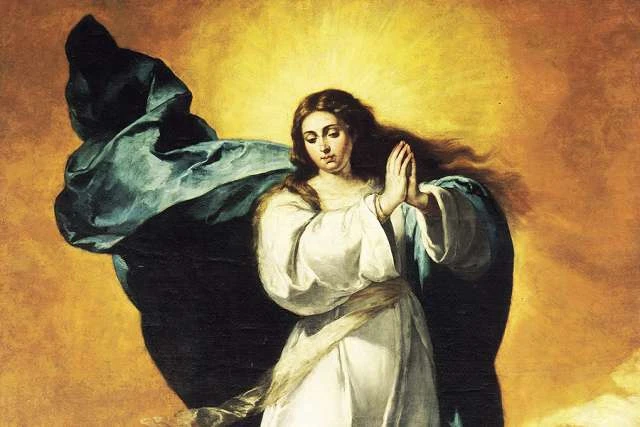

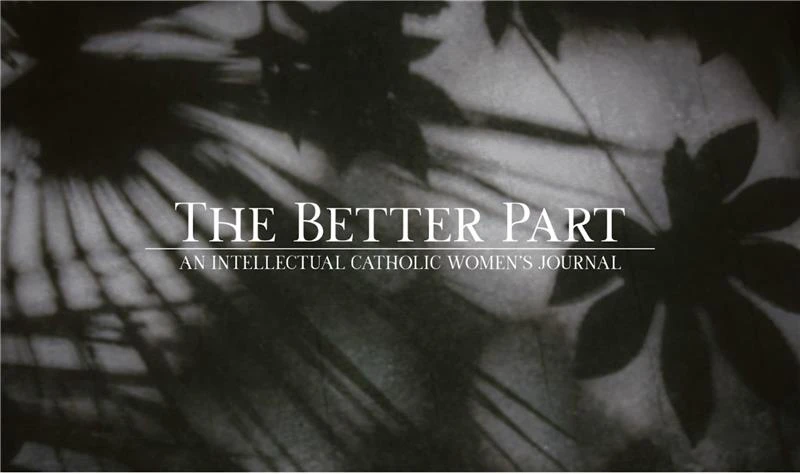


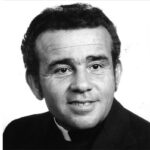
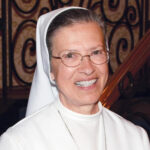
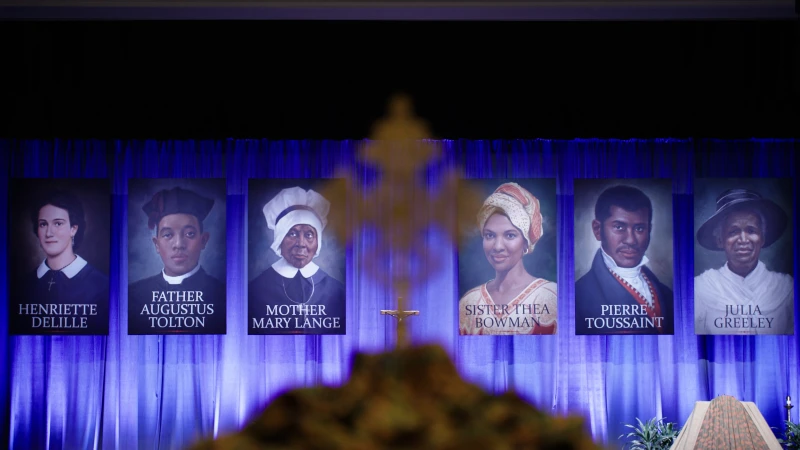

![Jefferson parish marks more than 65 years since church completion #Catholic - With joy, St. Jude Parish in the Lake Hopatcong neighborhood of Jefferson, N.J., marked more than 65 years of the construction of the church and even longer as a significant — and constantly improving — part of the spiritual and civic life of the community on Nov. 15 during a Mass with Bishop Kevin J. Sweeney.
Bishop Sweeney was the principal celebrant and homilist of the Mass. Father Kamil (Peter) Wierzbicki, pastor of St. Jude’s, concelebrated the Mass. Deacon Thomas Friel of St. Jude’s, John Meyer of St. Michael Parish in Netcong, N.J., and Timothy Dunmyer of Our Lady of the Lake Parish in Mount Arlington, N.J., who is studying for the permanent diaconate in the Paterson Diocese in New Jersey, assisted with the liturgy. The parish’s anniversary celebrations have been delayed, initially starting with COVID-19.
“The parishioners at St. Jude’s are close to each other, are good to each other, and help each other. They do what they can to make things happen. They are family,” said Father Wierzbicki, who was named the parish’s administrator in 2018 and pastor the following year. “Lake Hopatcong is a beautiful small rural community. It’s quiet, except in the summer, when people come to their vacation homes around the lake. The community recognizes St. Jude’s importance spiritually, historically, and socially and relies on us.”
Click here to subscribe to our weekly newsletter.
The 400-family St. Jude’s has groups such as the Rosary Altar Society, the Knights of Columbus, and the Men’s Prayer Group. The parish has supported outreaches such as food and holiday gift drives for families in need, programs such as Boy Scouts, Girl Scouts, and Alcoholics Anonymous, and community activities, such as blood drives, carnivals, dances, card parties, variety shows, Bingo, and school events. St. Jude’s belongs to the Lakeland Association of Churches of Lake Hopatcong.
To help meet the needs of the parish and community, St. Jude’s has made improvements to its facilities, including to its parish center and the parking lot, which was repaved. Renovations to the church have included a new altar of the tabernacle, an organ, a choir loft, and the renovation of the readers’ stands.
The heritage of St. Jude parish lies in the mission churches that sprang up around Lake Hopatcong in the early 20th century to serve the needs of the resort community’s large summer population.
In the fall of 1958, church construction began, with the formal dedication occurring Aug. 16, 1959, as a mission church of Our Lady of the Lake Parish in Mount Arlington, N.J. In 1966, the mission church St. Jude was promoted to parish status and assumed responsibility for the mission church St. Joseph in the Northwood section of Hopatcong, N.J. Father Joseph W. Molloy was the first pastor of St. Jude’s, which initially served 90 families.
BEACON PHOTOS | JOE GIGLI
[See image gallery at beaconnj.org]](http://unitedyam.com/wp-content/uploads/2025/12/jefferson-parish-marks-more-than-65-years-since-church-completion-catholic-with-joy-st-jude-parish-in-the-lake-hopatcong-neighborhood-of-jefferson-n-j-marked-more-than-65-years-of-the-construc.jpg)
![2 Filippini Sisters mark 50 years of service in Morristown #Catholic - Sister Elizabeth Seton Dalessio and Sister Donna Gaglioti of the Religious Teachers Filippini of the Province of St. Lucy Filippini on Nov. 15 rejoiced in each celebrating 50 years in consecrated life during a Mass in the community’s motherhouse chapel in Morristown, N.J.
Bishop Emeritus Arthur J. Serratelli of the Paterson Diocese in New Jersey celebrated the Mass for the two Jubilarians. Father Robert Kaeding, a retired priest of the Trenton Diocese, also in New Jersey, and a longtime associate of Sister Gaglioti’s, concelebrated the liturgy.
Click here to subscribe to our weekly newsletter.
The Filippini Sisters schedule a Mass for their Jubilarians close to Nov. 12, the Feast of the Presentation of the Blessed Virgin Mary. That’s when the sisters renew their oblation, their vows to the Pontifical Order Teachers Filippini.
BEACON PHOTOS | JOE GIGLI
[See image gallery at beaconnj.org]](http://unitedyam.com/wp-content/uploads/2025/12/2-filippini-sisters-mark-50-years-of-service-in-morristown-catholic-sister-elizabeth-seton-dalessio-and-sister-donna-gaglioti-of-the-religious-teachers-filippini-of-the-province-of-st-lucy-filippi.jpg)




![Rockaway parish continues 150-year legacy of faith, holiness #Catholic - On Nov. 22, St. Cecilia Parish in Rockaway, N.J., rejoiced in recalling its 150-year legacy of faith, service, community, and as an “incubator for vocations,” foremost among them the late Bishop Frank J. Rodimer, the sixth bishop of the Paterson Diocese in New Jersey.
During an anniversary Mass that afternoon, worshippers who filled the church also celebrated the current faith community — a population with young people and families strengthening St. Cecilia’s rich legacy of religious devotion, holiness, and spirituality. The Mass was held on the feast of the parish’s patron, St. Cecilia.
Bishop Kevin J. Sweeney was the principal celebrant and homilist of the Mass. Concelebrating the liturgy were Father Zig Peplowski, pastor of St. Cecilia’s for the past 16 years; Father Mateusz Darlak, the parish’s parochial vicar; Msgr. John Hart, pastor of Assumption Parish in Morristown, N.J., and a former pastor of St. Cecilia’s, and many priests who had been associated with the parish under Father Peplowski’s leadership.
Click here to subscribe to our weekly newsletter.
“St. Cecilia’s is a beautiful parish. Parishioners continually amaze me with their holiness,” said Father Peplowski. He said families of the parish, “an incubator for vocations,” have so far helped produce seven priests, eight religious sisters, and a religious brother. “The parish has strong Mass attendance. The people find holiness in their embrace of the sacraments, including penance, which restores their faith and commitment to Christ the Savior,” he said.
During the Nov. 22 Mass, Bishop Sweeney blessed a new wooden statue of St. Cecilia for the church, made in Italy and made possible by an anonymous donor.
The Morris County Parish also stays youthful with its school, Divine Mercy Academy (DMA). St. Cecilia School opened in 1958 and closed in 2016, when it merged with Sacred Heart of Jesus School, also in Rockway, to form DMA, which is located on the former St. Cecilia School site.
St. Cecilia’s lives out Christian service with food and coat drives and support to local organizations and diocesan Catholic Charities. The parish offers religious education for children and adults and hosts devotional activities, such as a Padre Pio Prayer Group.
St. Mary Parish in Dover, N.J., established a mission in Rockaway and built a church on Academy Street in 1869. After 1875, chaplains of St. Francis Health Resort in Denville, N.J., provided services. In 1881, St. Cecilia’s mission was advanced to parish status. In 1896, the church was moved to a new site on Church Street. A new church was built in 1955.
The Nov. 22 Mass concluded a yearlong series of 150th anniversary events, including an opening Mass last year with Bishop Emeritus Arthur J. Serratelli, a mission, and a talk about St. Cecilia’s history by Msgr. Raymond Kupke, diocesan archivist; a 40-hour Eucharistic devotion; and the parish’s first-ever carnival.
BEACON PHOTOS | JOE GIGLI
[See image gallery at beaconnj.org]](http://unitedyam.com/wp-content/uploads/2025/12/rockaway-parish-continues-150-year-legacy-of-faith-holiness-catholic-on-nov-22-st-cecilia-parish-in-rockaway-n-j-rejoiced-in-recalling-its-150-year-legacy-of-faith-service-community-and-a.jpg)
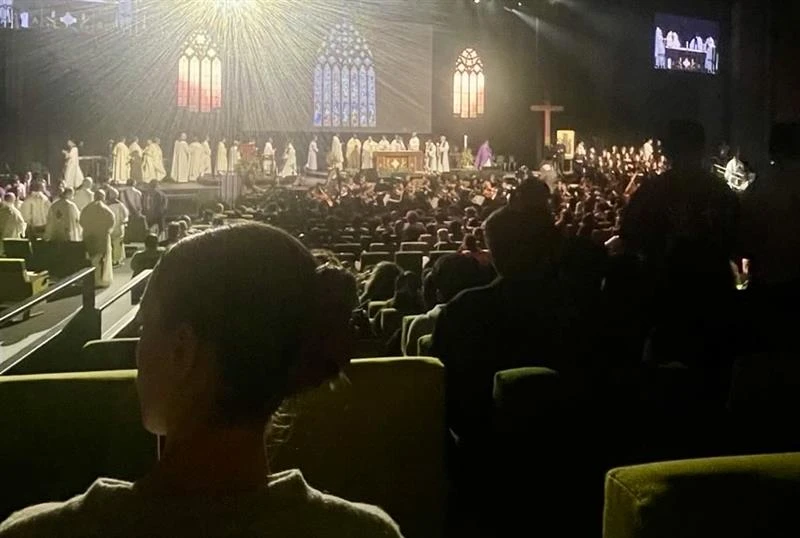

![Honorees recognized for service at Catholic Charities’ Caritas Gala #Catholic - Catholic Charities of the Paterson Diocese in New Jersey honored five people whose exceptional contributions are giving help and hope to improve the lives of people who are in need during its Caritas Gala 2025 at The Meadow Wood in Randolph, N.J., on Nov. 13. This year, two priests, a lay woman, and a married couple were recognized.
At the event, Catholic Charities celebrated the impact of its 70 programs and services, which promote dignity, well-being, and independence to thousands of people in need. The agency also honored its outstanding volunteers, supporters, and staff. Financial support of the Caritas Gala will make a difference in the lives of those Catholic Charities serves.
That evening, Scott Milliken, Catholic Charities’ CEO; Hazel Yaptangco, development director; and Father Martin Glynn, board president and pastor of St. Mary Parish in Denville, N.J., delivered their remarks. Bishop Kevin J. Sweeney gave the invocation. In place of a physical Missing Man table display, Ariel Jacob Luna, Catholic Charities Veteran Partner of the Year, presented a video honoring Veterans Day on Nov. 11 and reflecting on the symbolism of the Missing Man Table.
“We pray that our gratitude to Almighty God and our celebration of the work of our honorees will strengthen each of us in God’s service and make us ever more committed to caring for those in need of your generous, open hearts,” Bishop Sweeney wrote in the gala program.
Bishop Sweeney presented Paul and Anne Krump of St. Joseph Parish in Mendham, N.J., parents of three and grandparents of five, with the Diocese of Paterson Bishop’s Award for promoting Catholic education and supporting the renovation of the Father English Food Pantry in Paterson, N.J. Locally, they have been involved with the Tri-County Scholarship Fund and Assumption College for Sisters in Denville. The Krumps are active in their parish and the Order of Malta.
Click here to subscribe to our weekly newsletter.
Father Owen B. Moran, pastor of St. Vincent Martyr Parish in Madison, N.J., received the Msgr. Mark Giordani Award for more than three decades of pastoral service, social outreach, and spiritual leadership. He initiated a collaborative effort among St. Vincent’s parishioners to help struggling families in Paterson and Dover. He established food pantries at two previous parishes. Father Moran is an Order of Malta chaplain and ministers to the Morris County Correctional Facility, hospice patients, and bereavement groups.
Msgr. John E. Hart, pastor of Assumption Parish in Morristown, N.J., and diocesan director of Clergy Personnel, was honored with the Father Jack Wehrlen Award, “recognizing his priestly heart that reaches out to the brokenhearted and marginalized, giving them hope born of unshakable zeal,” Bishop Sweeney wrote. Msgr. Hart served in many diocesan positions, including as chancellor and in the Tribunal. He is a Fourth Degree member of the Knights of Columbus and a Knight of the Equestrian Order of the Holy Sepulchre of Jerusalem.
Harpreet Peleg received the Father Norman James O’Connor Award for “her visionary efforts in the world of finance that build up communities which need new life and hope,” according to the bishop. She is the CEO of Building America CDE and the CFO of the AFL-CIO Housing Investment Trust, a leader in impact investing. Formally Building America’s CFO, Peleg played a critical role in its successful allocation of $263 million in New Markets Tax Credits to 31 projects to date.
BEACON PHOTOS | JOE GIGLI
[See image gallery at beaconnj.org]](http://unitedyam.com/wp-content/uploads/2025/12/honorees-recognized-for-service-at-catholic-charities-caritas-gala-catholic-catholic-charities-of-the-paterson-diocese-in-new-jersey-honored-five-people-whose-exceptional-contributions-are.jpg)